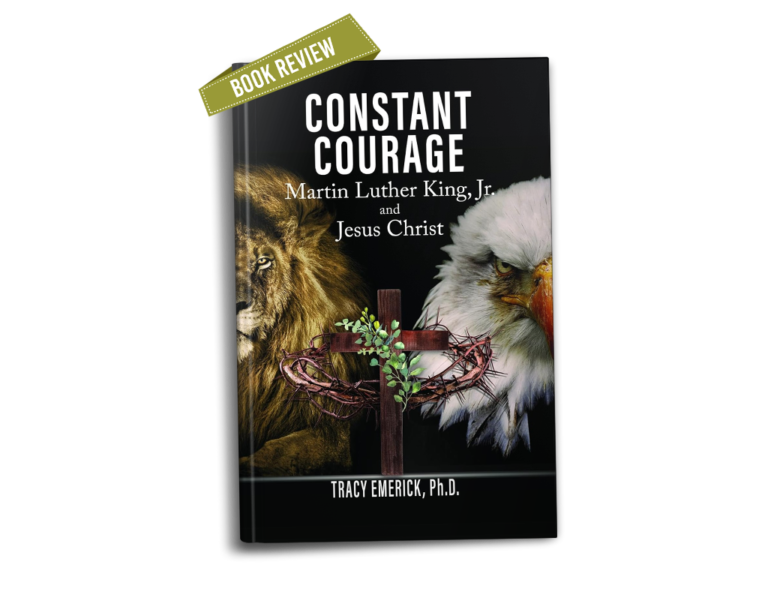Home » CONSTANT COURAGE: MARTIN LUTHER KING, JR. AND JESUS CHRIST | Reviewed By Kent Lane for IndieReader


The prolific Christian author encourages readers to live life without fear and take inspiration from Martin Luther King, Jr. and Jesus Christ.
The focus of CONSTANT COURAGE, the latest book in Tracy Emerick’s series in which he compares modern cultural figures to the life and message of Jesus Christ, is the idea that man lives in fear and that courage is required to earn a better, more fulfilling life. As far as Emerick is concerned, “fear is our greatest enemy.” To explain his point, the author references Jungian analysis and more recent research on the modern social-media driven phenomenon of FoMo, or “fear of missing out,” wherein individuals become so concerned by the possibility of others’ success or happiness that they lose sight of their own place in the world.
Emerick (who notes he has a doctorate but doesn’t mention the subject) insists the answer to this state of fear is to embrace the idea of “constant courage,” exemplified by the lives of both Martin Luther King, Jr. and Jesus Christ. In seeking to answer the question as to why we are afraid, Emerick cites Dr. King’s guidance on the importance of first confronting what we think is frightening us: “this confrontation will, to some measure, grant us power.” King believed that by bringing our fears to the forefront of our consciousness, many of them will be revealed as more imaginary than real.
As with Emerick’s other books in the series, CONSTANT COURAGE provides somewhat basic biographical information on its main subject, with King’s life and work summarized without any great detail or fresh insight. Those looking for a book on King with added context and comment on his life will be disappointed. Much of the material (such as the full text of the famous “I Have A Dream” speech) is readily available elsewhere in far more rigorous critical studies.
Emerick is at his best when he steps away from the purely factual and the rote Biblical references and more freely sermonizes. In this text he introduces the idea of people living with the “Cape of Courage,” allowing them to face danger, fear, and difficulty. This is then allied to the radical act of wearing the “Cape of Love,” which Emerick believes to be so integral to King and Jesus. He concludes that “love is the greater motivation and inspiration for the non-violent activism of Martin Luther King,” and that love is also the inspiration for Jesus’ messages of healing and peace. Through the teachings of Jesus and King, Emerick identifies love as the key to conquering fear.
In CONSTANT COURAGE, the comparison between Dr. King’s fight for civil rights and Jesus’ championing of the poor and downtrodden is well made. Though somewhat lacking in biographical detail and analysis, Tracy Emerick’s positioning of both men as radical agents of change driven by love and the ability to face their fears is thought-provoking and engaging.
PAYMENT METHODS
